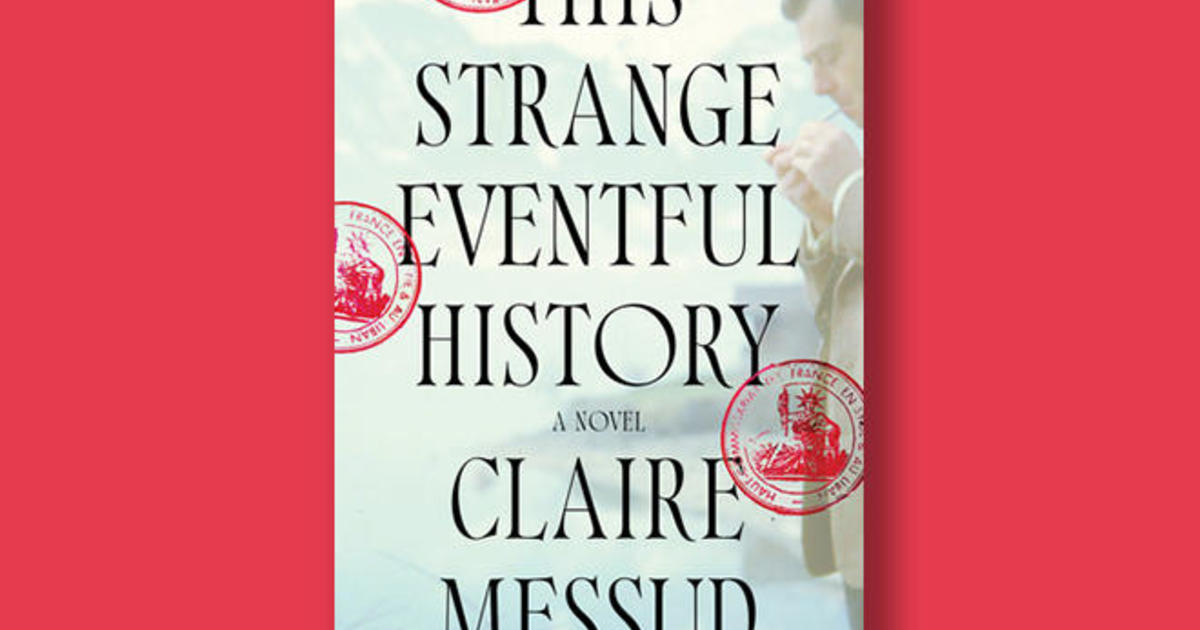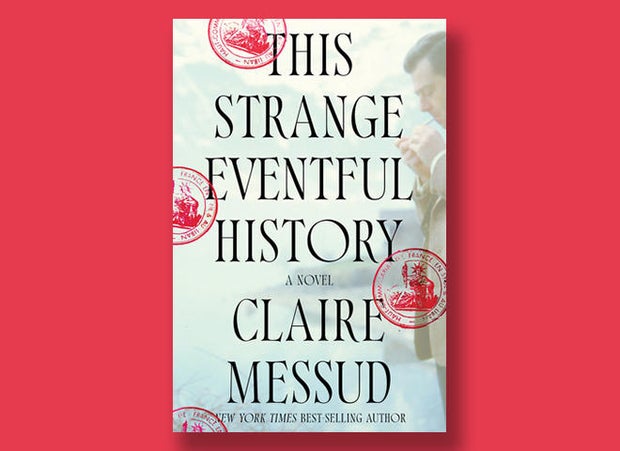[ad_1]
W.W. Norton
We may receive an affiliate commission from anything you buy from this article.
Claire Messud, the bestselling author of “The Emperor’s Children,” returns with “This Strange Eventful History” (W.W. Norton), a multi-generational story of family secrets spanning World War II to the 21st century.
Read an excerpt below.
“This Strange Eventful History” by Claire Messud
Prefer to listen? Audible has a 30-day free trial available right now.
Prologue
I’m a writer; I tell stories. Of course, really, I want to save lives. Or simply: I want to save life.
Seven years, the clairvoyant said, that summer afternoon already long ago. Seven years in the Valley of the Shadow. The sunlight through the window behind her head transformed her rusty curls into a golden nimbus. We sat opposite each other over a card table in the front room of her chintzy saltbox, a mile from the waterfront in a seaside New England holiday town. Like most of her clients, I was just passing through. Though I told her I was a writer, she insisted that I was a healer; once she said it, I willed it to be true. Or: I realized I had always willed it to be true, though we’re told that poetry makes nothing happen. My desire, as old as humanity, to make words signify.
Seven years’ journey in the shadow of Death: at the time of her prophecy, I was almost halfway through, if one counted from the family trip to my late grandparents’ home in Toulon, France, to celebrate my father’s seventy-fifth—a work, as was said, of colossal administration, a gathering that was also an unraveling: my father in physical collapse, my mother, gaunt, in mental disarray, my aunt dancing in ever tighter circles around her bottle of whiskey, our children, still small, antic in the Mediterranean sun. But the count could have started sooner—from the time my mother could no longer manage to prepare a full meal; or the time, well before, when she could no longer keep track of the kids’ birthdays; or, before that still, when she couldn’t, for even an hour, manage the kids themselves. … But if I start at the end and count backward—the end being the last death, my aunt’s death, fast on the heels of my mother’s, neither death long after my father’s—then the Cape clairvoyant held my trembling hand in hers truly at the midpoint.
I’m a writer; I tell stories. I want to tell the stories of their lives. It doesn’t really matter where I start. We’re always in the middle; wherever we stand, we see only partially. I know also that everything is connected, the constellations of our lives moving together in harmony and disharmony. The past swirls along with and inside the present, and all time exists at once, around us. The ebb and flow, the harmonies and dissonance—the music happens, whether or not we describe it. A story is not a line; it is a richer thing, one that circles and eddies, rises and falls, repeats upon itself.
And so this story—the story of my family—has many possible beginnings, or none: Mare Nostrum, Saint Augustine, Abd el-Kader, Charles de Gaulle, my grandparents, L’Arba, my father, my aunt, Zohra Drif, my mother, Albert Camus, Toronto, Cambridge, Toulon, Tlemcen, oh, Tlemcen: all and each a part of the vast and intricate web. Any version only partial.
Or I could begin with my birth, or my father’s birth or his father’s birth, or my mother’s or grandmother’s. I could begin with the secrets and shame, the ineffable shame that in telling their story I would wish at last to heal. The shame of the family history, of the history into which we were born. (How to forget that after attending the birth of his first grandson, my father, elderly then, tripped on the curb and fell in the street, a toppled mountain, and as he lay with the white down of his near-bald head in the gutter’s muck he muttered not “Help me” but “I’m sorry, I’m sorry, I’m sorry”?) I could begin, of course, with the aloneness.
Or I could begin with the fact that the owner of our local pizzeria and our former next-door neighbor is an Algerian man whose surname is also the name of the provincial Algerian town of his ancestors, the same town in which my pied-noir grandmother taught at the girls’ school in her youth, in the years before she married—years that were, in her case, numerous, because she didn’t marry until her mid-thirties, then an age by which women were deemed unmarriageable. She might even have taught my neighbor’s grandmother or great-grandmother. Or I could begin with the fact that the beloved Lebanese friends of my grandfather’s prewar posting in Beirut include the great-uncle of a dear friend of mine in this American life almost a century later, whose daughter played with our son from the time they were round-limbed toddlers. Or I could begin with the angels on my father’s last journey to death, the witnesses to his many lives who appeared, sentinels and guides, along that final path, to guide him, the ultimately homeless, to his eternal home …
It doesn’t matter so much where this story begins as that it begins. And if, as I’ve come to understand, the story is infinitely expanding, rather than a line or thread, then wherever I start is merely that—not the beginning but a mere moment, a way of happening, a mouth …
From “This Strange Eventful History” by Claire Messud, published by W.W. Norton & Company. Copyright 2024 by Claire Messud. All rights reserved.
Get the book here:
“This Strange Eventful History” by Claire Messud
Buy locally from Bookshop.org
For more info:




